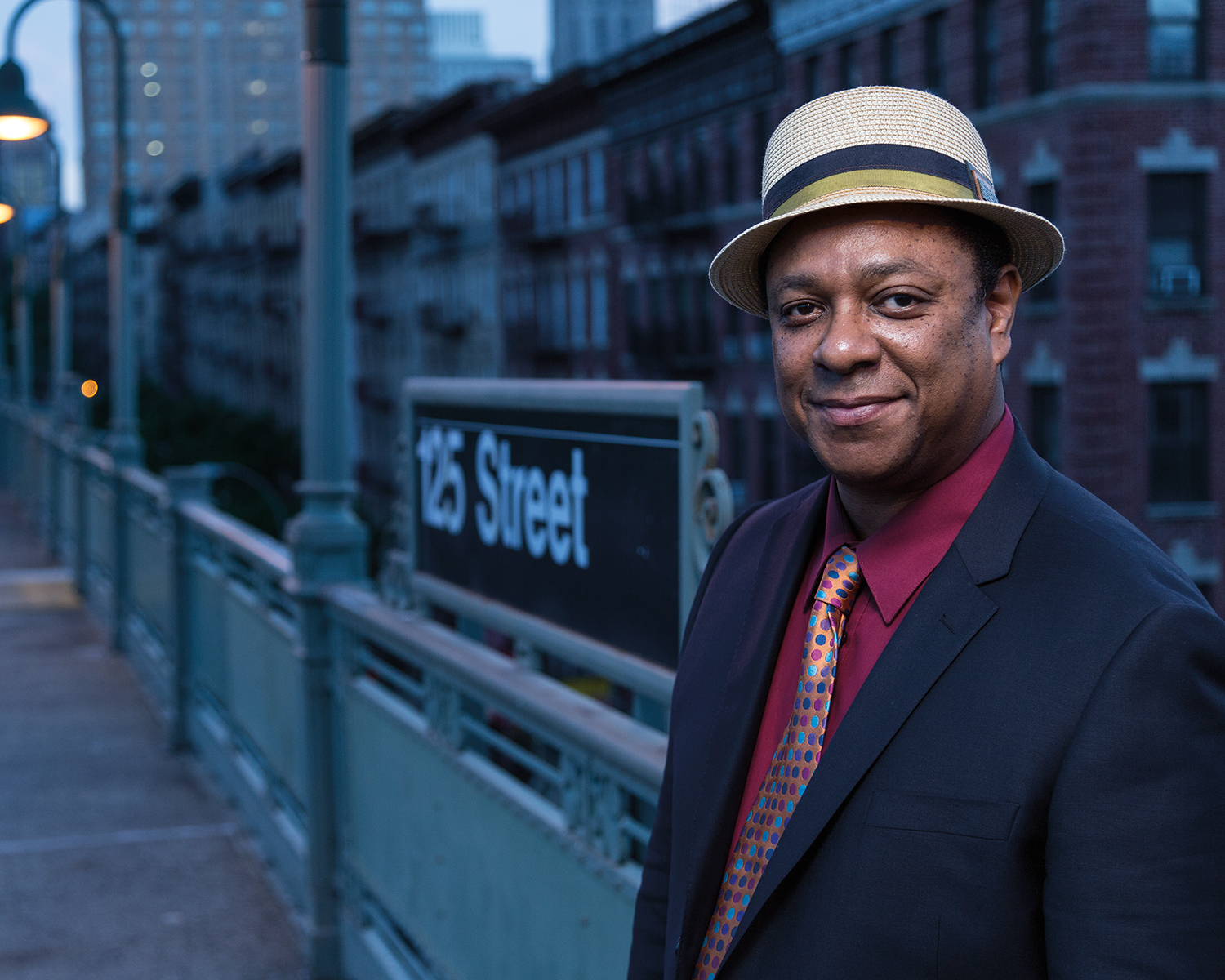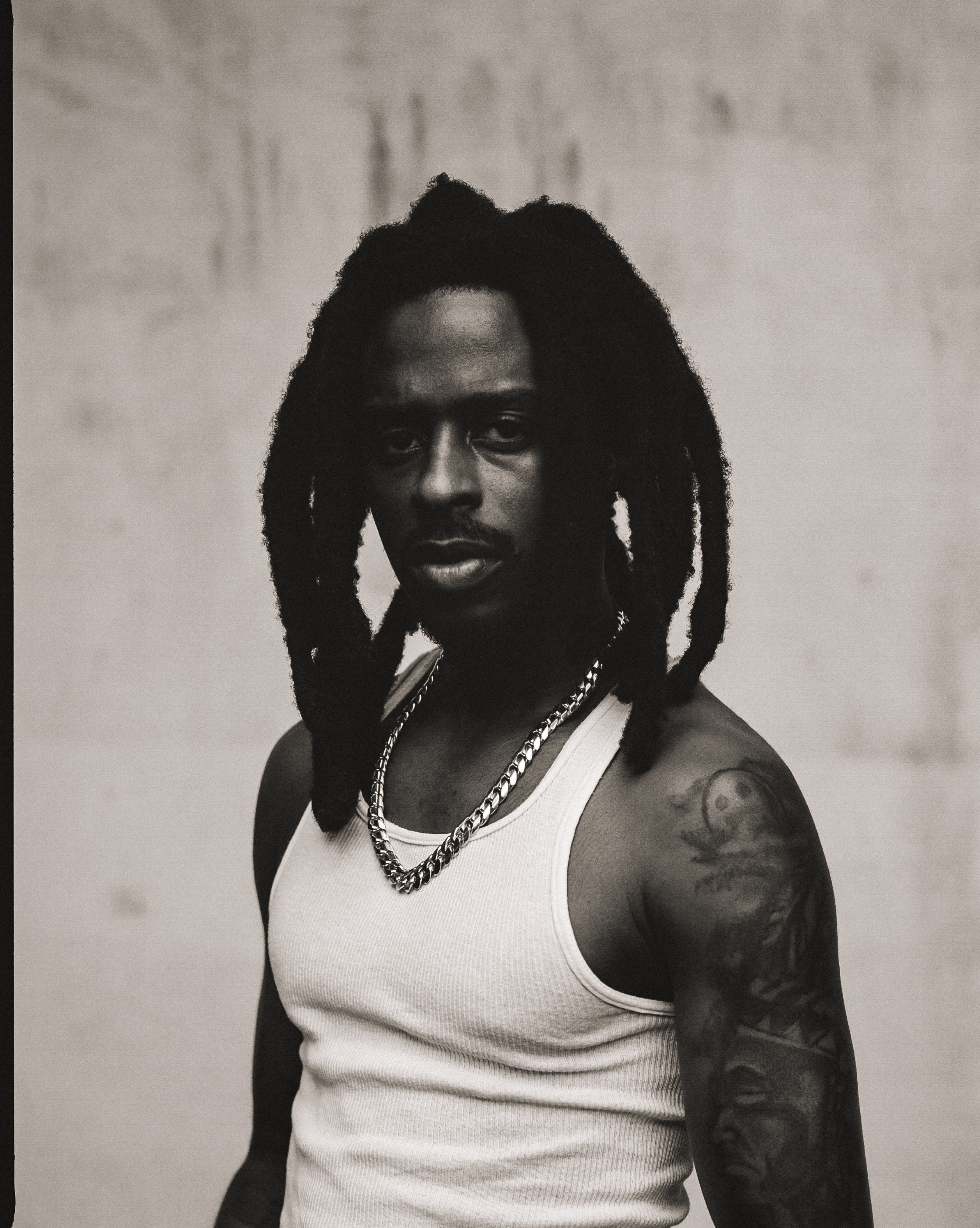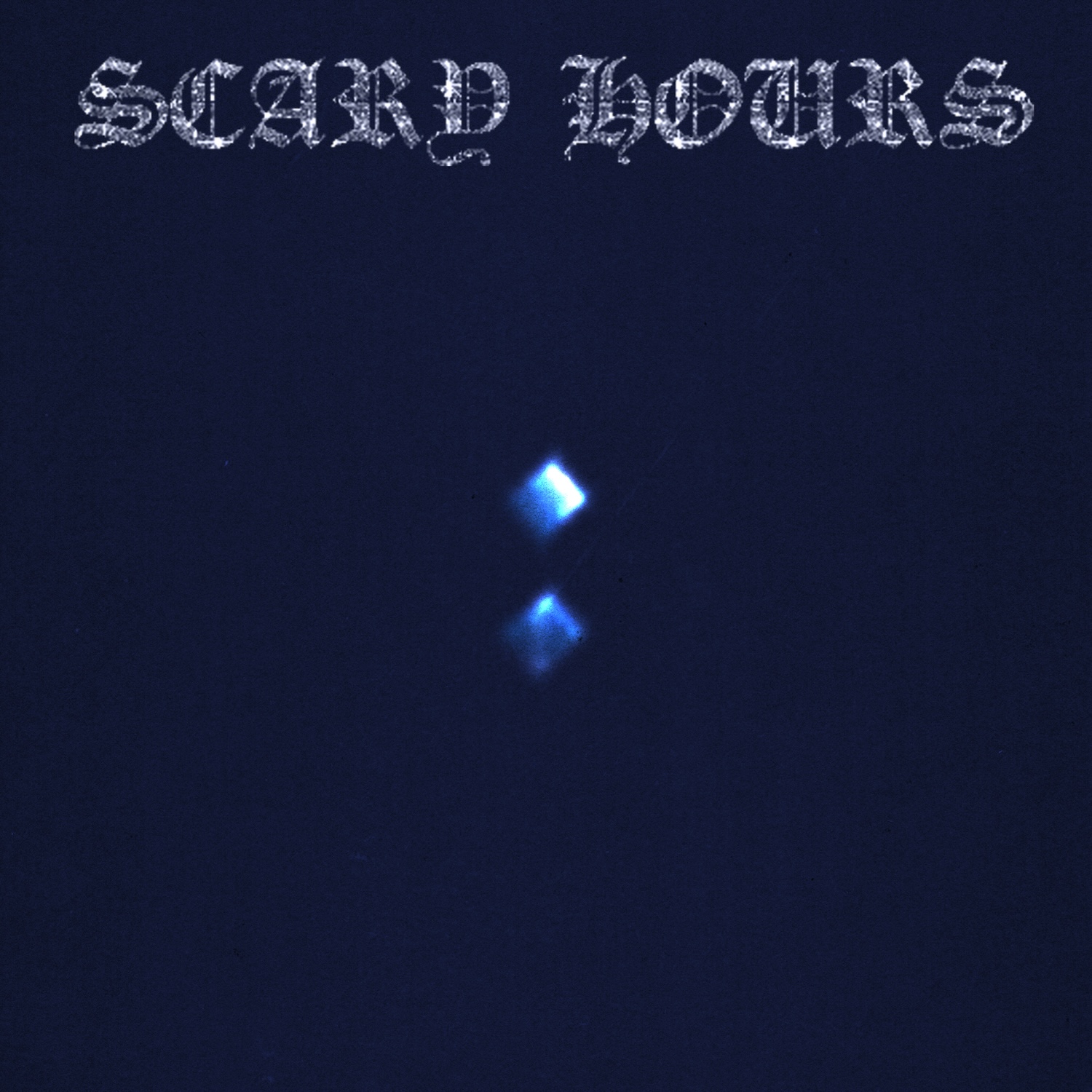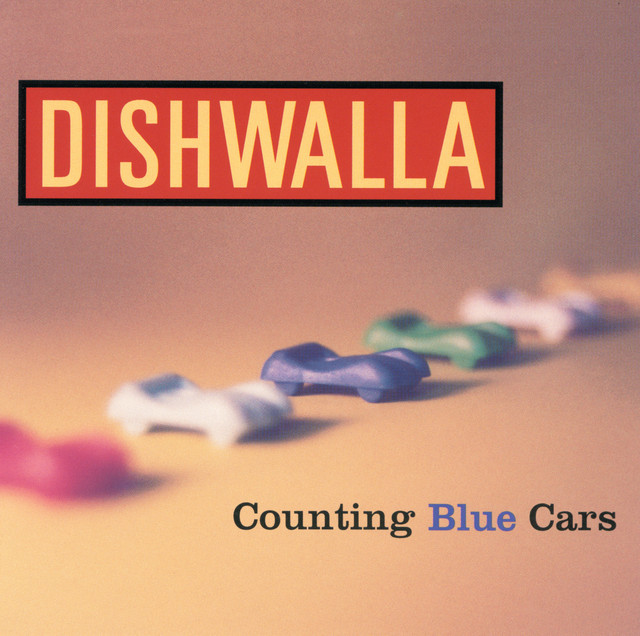A week ago, on November 10, I caught guitarist John McLaughlin's farewell US tour at NJPAC in Newark, NJ. I haven't paid much attention to his solo work, but I love the four albums (three studio, one live) by the original lineup of the Mahavishnu Orchestra, as well as his work with Miles Davis on Bitches Brew, A Tribute to Jack Johnson, Live-Evil, On The Corner and Big Fun and his collaboration with Carlos Santana, Love Devotion Surrender. And this show was explicitly billed as being all about that Mahavishnu era of shredtastic prog-fusion, so I knew I had to be there.
Guitarist Jimmy Herring and his band opened the show. He's a member of Widespread Panic and has played with the Allman Brothers Band. His group included two keyboardists, with one of them doubling on violin. They started their set with a version of "John McLaughlin," from Miles Davis's Bitches Brew, which was a big hint as to what was coming the rest of the night. For 45 minutes, without saying a word to the audience, they played what mostly sounded like the Allman Brothers Band gone jazz fusion, except for one slightly heavier piece that sounded like current Opeth.
After that, McLaughlin came out with his band the 4th Dimension and played a half dozen pieces, most of which were relatively new. His band included a five-string bassist who played with black silk gloves on, and a keyboardist who doubled on drums; their first set, which also ran about 45 minutes, climaxed with a double-drum interlude during which the primary drummer chanted and scatted along with the rhythm. Then the thing pretty much everyone had come to see happened: Herring's band came back onstage, and the whole nine-piece ensemble (two guitarists, two keyboardists, two bassists, two drummers, and a violinist) played close to an hour of Mahavishnu Orchestra material, navigating the twisting, virtuosic melodies at speed like street racers. Typically, one bassist or the other (Kevin Scott from Herring's band, Etienne Mbappé from McLaughlin's) would play at a time, but both drummers -- Jeff Sipe and Mark Mondesir -- were going at all times, and they were on fire, slamming out intricate rhythms in a way that reminded me a lot of the King Crimson show I saw a few months ago. It was great; I had a blast. I hope a live album comes out of this tour, because it was some really special music that more people should have a chance to hear.
Sad news arrived shortly after last month's column was published. Pianist Muhal Richard Abrams died on October 29, at 87. He was a founder of the AACM, and once said of his relentless autodidacticism, "I was determined to teach myself because that way I could go directly at what I wanted." He formed the Experimental Band in 1962, and the AACM in 1965. He was a multi-instrumentalist and someone who composed and recorded in a broad range of formats, including string quartets, big bands, and orchestral pieces. His music wasn't the easiest to get a grip on right away, but the way he incorporated vernacular elements, borrowing from the blues and Duke Ellington, among many other places, allowed him to plant little depth charges in what seemed like monumentally abstract pieces. Eventually, his work will get its hooks in you and you'll wonder what you were doing with your life before you heard it. Check out his first two albums, 1968's Levels And Degrees Of Light and 1970's Young At Heart/Wise In Time, as well as 1980's Mama And Daddy, 1982's Blues Forever, and 1987's Colors In Thirty-Third. He also released a fantastic solo piano album, Vision Towards Essence, in 2007. Stream "Part 1":
Something I never thought would happen has happened: ECM Records has allowed its music to be streamed. They're slowly rolling out their catalog of over 1600 jazz, classical, and avant-garde music titles throughout the month, but there's already a vast amount of it up. This will include titles that are out of print on CD. To me, this alone justifies the $10 a month I pay for Spotify. If you don't know where to start, which is entirely understandable, I recommend the Art Ensemble of Chicago's Urban Bushmen, Leo Smith's Divine Love, John Abercrombie's The First Quartet, Terje Rypdal's Whenever I Seem To Be Far Away, Marion Brown's Afternoon Of A Georgia Faun, and Jack DeJohnette's Special Edition.
And now, let's talk about the best new jazz albums of the month!
Archival Find Of The Month: Derek Bailey & Greg Goodman, Extracting Fish-Bones From The Back of The Despoiler (Beak Doctor)
This LP (also available digitally) documents a live performance by guitarist Bailey, who died on Christmas Day 2005) and pianist Greg Goodman, but to say that alone really tells you almost nothing about it. Bailey's approach to his instrument was highly idiosyncratic. There often seemed to be little perceptible logic to his choices; he'd opt for a tiny scraping sound, or a sudden surge from the volume pedal, or a quick flurry of disjointed notes that seemed deliberately designed to avoid conventional melody as much as possible. His philosophy of improvisation was almost adversarial; I interviewed him in 2002, and he said, "There has to be some degree, not just of unfamiliarity, but incompatibility [with a partner]. Otherwise, what are you improvising for? What are you improvising with or around? You've got to find somewhere where you can work. If there are no difficulties, it seems to me that there's pretty much no point in playing. I find that the things that excite me are trying to make something work. And when it does work, it's the most fantastic thing. Maybe the most obvious analogy would be the grit that produces the pearl in an oyster, or some shit like that." Here, he's working with/against Goodman, who plays the strings inside the piano as much as he does the keys, so for long stretches of the two 20-minute pieces, it's difficult to know who's making what noise. Those with a taste for the farthest edges of free improvisation will find this fascinating.
Stream "The Mother Of The Crow":
Vincent Herring, Hard Times (Smoke Sessions)
Alto saxophonist Vincent Herring has assembled a killing band for his third album on the Smoke Sessions label. The core group is pianist Cyrus Chestnut, bassist Yasushi Nakamura, and drummer Carl Allen, and the music took shape over the course of a six-month residency at Smoke -- two sets every Monday night -- by Herring, Nakamura and Allen. On the album, that quartet is augmented on several tracks by a three-piece horn section (Brad Mason on trumpet, Sam Dillon on saxophone, and Steve Turre on trombone), guitarist Russell Malone, and vocalist Nicolas Bearde, whose rich, low voice may remind you of Bill Withers. A lot of this music, especially "Use Me," is closer to funk and soul than jazz, and the group's version of "Embraceable You" could find a home on a quiet storm station. (Do those still exist?) Herring's voice on the horn is quick and energetic, but smooth; he's going for a Hank Crawford/Stanley Turrentine vibe, with just enough grit to keep the listener on edge. Chestnut switches back and forth between piano and organ, as needed, and is terrific in either context.
Stream "Good Morning Heartache":
Marcus Roberts Trio, Trio Crescent: Celebrating Coltrane (J-Master)
Blind pianist Marcus Roberts is revered in mainstream/conservative jazz circles; he came up in the '80s playing in Wynton Marsalis's band, and can be heard on albums like J Mood, Marsalis Standard Time Vol. 1, and Live At Blues Alley, all of which are among the trumpeter's best work. He's also made close to two dozen albums as a leader, which include tributes to Duke Ellington as well as Scott Joplin and George Gershwin. Roberts claims to want to explore and encompass all of jazz history in his work, but he definitely seems more focused on the first half of the 20th century. So this record is something of an outlier in his catalog. He and his rhythm section -- bassist Rodney Jordan and drummer Jason Marsalis -- have chosen to re-record John Coltrane's 1964 album Crescent in its entirety, without a saxophonist. There's also a version of "Traneing In" at the end. Crescent, recorded six months before A Love Supreme, is one of Coltrane's greatest, most beautiful albums, and Roberts takes a unique but very smart approach to the material -- basically, he combines the saxophone and piano parts (originally played by McCoy Tyner) into one melodic concept, and in the process creates an incredibly deep and emotionally resonant trio album.
Stream "Bessie's Blues":
Ron Miles, I Am A Man (Yellowbird)
Cornet player Ron Miles reconvenes a long-standing trio with guitarist Bill Frisell and drummer Brian Blade for this album, and adds two additional players, pianist Jason Moran and bassist Thomas Morgan (with whom Frisell recorded a duo album for ECM this year). That's a seriously talented band, albeit one that tends to simmer rather than boil. And indeed, the music here has a quiet dignity in keeping with the civil rights-era sign that gives the album its title (and appears on the cover), as compared with angrier, more militant slogans from that same period. Miles himself steps back for significant portions of the disc; "Darken My Door" runs 13 minutes, of which the first four are a Moran-Morgan-Blade trio. When the cornet does appear, he's blowing a soft, beautiful melody, not blasting high notes at the ceiling. On "Mother Juggler," the whole band is present, and they're playing a sort of cocktail blues; it's gritty, especially what Frisell is doing, but everyone sounds like they're seated comfortably. That's a compliment.
Stream "Mother Juggler":
Marta Sanchez Quintet, Danza Imposible (Fresh Sound New Talent)
Marta Sanchez, a pianist from Spain who's lived in New York since 2011, recorded her third album with a great band: saxophonists Roman Filiu and Jerome Sabbagh, bassist Rick Rosato, and drummer Daniel Dor. Despite being written for a traditional jazz quintet, the compositions have a weird energy that reminds me of modern classical and/or abstract electronic music. The title track, "Danza Imposible," begins with a just slightly off horn figure over a hypnotic piano melody. When the two saxophones begin to go their separate ways, coexisting without exactly harmonizing, Sanchez, Rosato and Dor create a lurching, fractured rhythmic bed for them. Her piano style is extremely delicate, but focused at the same time; she's got a lot of power that she holds in reserve for just the right moment.
Stream "Danza Imposible":
Danny Janklow, Elevation (Outside In Music)
L.A.-based alto saxophonist Danny Janklow makes his debut with this album, combining mainstream hard bop with splashes of funk and even some smooth jazz elements. The album doesn't feature one band throughout; instead, he shuffles musicians from track to track. The collective roster includes John Beasley and Eric Reed on piano, Sam Barsh on keyboards, Nick Mancini on vibes, Benjamin Shepherd and Ben Williams on bass, and Jonathan Pinson on drums, with Michael Mayo and Jesse Palter singing on a couple of tracks. Janklow is an extremely fast and technically adept player, who occasionally cuts loose with a hoarse screeching noise that sounds like an enraged parrot. His melodies are catchy enough, though, that I'm kind of amazed this album's not on Posi-Tone. The band tackles Radiohead's "Creep," with both piano and organ behind Janklow's hoarsely emotive soloing, and it works really well even without the crunching guitar sound that everyone assumes makes that song what it is.
Stream "Creep":
Lisa Mezzacappa, Glorious Ravage (New World)
Bassist and composer Lisa Mezzacappa has adventure on her mind. Glorious Ravage is a song cycle for a 14-member ensemble that includes a half dozen horns and reeds, piano, harmonium, guitar, violin and viola, vibraphone, two bassists, drums, and electronics, plus vocalist Fay Victor, and all the lyrics are drawn from or inspired by the letters and journals of female explorers from the Victorian era. It's meant to be performed in conjunction with films created by four Bay Area video artists, but it works extremely well as just music. The ensemble surges and swirls around Victor, whose vocals have a poet's cadence; she's also able to dip into vocal sounds, sputtering and squawking on "Heat and Hurry" before jumping back into the lyrics/texts. "Make No Plans" allows Mezzacappa to step forward with a heavy, thrumming bass solo, the ensemble twittering and rattling around her like jungle creatures. Victor's lead vocal is bolstered by chants from the larger group.
Stream "Make No Plans":
https://soundcloud.com/newworldrecordscri/make-no-plans-from-glorious-ravage-lisa-mezzacappa
Courtney Pine, Black Notes From The Deep (Freestyle)
Courtney Pine is one of the most important musicians in the history of British jazz. He released his first album as a leader 30 years ago, in 1987, and since then has been a radio DJ and a major influence and mentor to younger musicians. In the '80s, he formed the Jazz Warriors, a group which later spawned Tomorrow's Warriors, a jazz academy that's shaped a lot of the UK's best contemporary musicians, including Shabaka Hutchings, Binker & Moses, Nérija, Zara McFarlane and more. This new album features Robert Mitchell on piano, Alec Dankworth on bass, and Rod Youngs on drums, with organist Ed Bently and guitarist Chris Cobbson guesting on one track each. Four of the songs also feature vocalist Omar. Pine's tone is sharp and fierce, and occasionally he sounds like he's feeding the saxophone through a pedal. Even when the band goes deep into the blues, there's always a 21st century quality to the music. And the ballads have a thick, mournful quality, which is only fitting when you're titling pieces "Rivers Of Blood" or "How Many More." This is a powerful album by a guy who's never really gotten his due in the US, but whose influence in his home country has been vast.
Stream "Rivers Of Blood":
Rez Abbasi & Invocation, Unfiltered Universe (Whirlwind)
Guitarist Rez Abbasi is Pakistani, but he gets pushed under the "Indian jazz" umbrella by writers, alongside Vijay Iyer and Rudresh Mahanthappa. That's not surprising, considering that the three men have a long history of working together in various ensembles. This is the third album by Invocation, a band that features Mahanthappa, Iyer, bassist Johannes Weidenmuller and drummer Dan Weiss. Each Invocation album takes a South Asian musical tradition as its launch pad: 2008's Things To Come was influenced by North Indian Hindustani music, while 2011's Suno Suno explored the Qawwali music of Pakistan, and Unfiltered Universe (on which they're joined by cellist Elizabeth Mikhael on a few tracks) borrows ideas from Carnatic music of South India. Of course, if I hadn't pointed that out to you, you might not have noticed it yourself. This isn't some kind of relaxing, "world fusion" album that you could put on in the background at a restaurant. It's complex, hard-driving modern jazz that frequently tips over into chopstastic fusion, with a lot of stinging electric guitar from Abbasi including a short interlude, "Thoughts," on which whatever pedal he's using almost makes it sound like the tape is running backwards.
Stream "Unfiltered Universe":
Brian Blade & The Fellowship Band, Body And Shadow (Blue Note)
Drummer Brian Blade's latest release might be the shortest jazz album of 2017: nine tracks in under 32 minutes. The group -- Myron Walden on alto sax and bass clarinet, Melvin Butler on tenor sax, guitarist Dave Devine, pianist Jon Cowherd, and bassist Chris Thomas -- has been together for 20 years. This is their fifth release. They've never been a traditional jazz group; their debut was produced by Daniel Lanois, and their music has always had a wafting, atmospheric feel. They incorporate elements of country, blues and gospel into their slow-walking compositions, and solos are subued, though still vibrantly alive. There are some interesting structural experiments here; the title piece is played three times ("Morning," "Night" and "Noon"), and there are two back-to-back versions of the spiritual "Have Thine Own Way, Lord" -- a solo take that sounds like it's played on a harmonium or accordion, and a full-band version. "Broken Leg Days" has one of those meandering, slowly building seesaw melodies that seem to dominate 21st century jazz, but when Blade brings the drums crashing in, he ups the energy level about five notches in an instant. This is a very enjoyable way to spend a half hour.
Stream "Broken Leg Days":
Vinnie Sperrazza Apocryphal, Hide Ye Idols (Loyal Label)
Back in 2015, drummer Vinnie Sperrazza released an album called Apocryphal that featured alto saxophonist Loren Stillman, electric guitarist Brandon Seabrook and bassist Eivind Opsvik. Now, that group has actually taken Apocryphal as their name, and they're back with a second collection of tunes every bit as impressive as the debut. Seabrook might be the most adventurous guitarist in jazz right now; he loves to make noise, but he sculpts it in an incredibly beautiful way. He's a perfect match for Stillman, who favors long tones that barely waver. They understand the value of production, too, adding static and light touches of distortion to the music so you know it's not just four dudes working through tunes in a room, but an actual collective artistic concept at work. On "Bulwer Lytton," things start out somewhat pretty, but as the tune progresses you can hear Sperrazza slowly pumping the energy level up, and Seabrook responding, making his guitar just a little more barbed than it was a minute before.
Stream "Bulwer Lytton":
Jure Pukl/Matija Dedić, Hybrid (Whirlwind)
Croatian pianist Matija Dedić and Slovenian saxophonist Jure Pukl are joined by an American rhythm section -- bassist Matt Brewer and drummer Johnathan Blake -- and, on two tracks, Chilean saxophonist Melissa Aldana. Pukl switches back and forth between tenor and soprano, but no matter what he's playing, he's got a thoughtful and introspective approach to the horn that's complemented by the pianist and the rhythm section. Blake is a terrific player with a deep blues and swing feeling, and Brewer plays like he's floating in midair, so between the two of them the music has lightness and gravitas at the same time. "Family," the second track to feature Aldana, starts off with almost murmuring harmonies from the two horns; Pukl is on soprano, Aldana on tenor, and she shadows him a little at first, then steps back so he can make a statement, which she comes back to elaborate on. It's very gracious, in a lush '70s manner, and Brewer's bass solo has a thick, bouncy sound that adds to the vintage-ish feel.
Stream "Family":
Rahsaan Barber, The Music In The Night (Label)
Nashville-based saxophonist Rahsaan Barber wants people to know his home city has more to offer than country. On his third album, he and pianist Matt Endahl, bassist Jack Aylor, and drummer Derrek Phillips tackle a range of standards ("My Funny Valentine," "The Girl From Ipanema") and soul/R&B tunes (Stevie Wonder's "Isn't She Lovely," Michael Jackson's "She's Out Of My Life," Ray Charles' "Georgia On My Mind"), transforming them in various ways. Some work, others don't -- "My Funny Valentine" really didn't need a reggae beat. But the most straightforward jazz material is where the quartet really digs in. Barber's ballad playing is thoughtful and sensitive, but when the drums kick in, he can rip it up with a hoarse, crying tone and fast-on-his-feet phrasing. The version of hard bop workout "The Backbone," initially recorded by Dexter Gordon in the early '60s, is a great example; the band drives hard, especially Aylor, and Barber really cuts loose.
Stream "The Backbone":
Gebhard Ullman & Alexey Kruglov, Moscow - Berlin (Fancymusic)
This is a collection of duets on various reeds and woodwinds (saxophone, clarinet, flute), partly composed and partly improvised, with some slight processing added after the fact. As with many high-density improv records, it's hard to pinpoint who's making what sound at any given time, but the collective result is quite beautiful. The music has a feel at times that reminds me of Prokofiev's Peter And The Wolf; it seems to describe nature, as the low tones come through like wind across a half-frozen river and the higher-pitched flurries of notes whip past like blasts of snow or the cries of agitated birds in barren trees. The subtle electronic manipulations, which mostly manifest as background drones, add an ominous undertone. But then there are pieces that have an almost old-timey joy, like "Gulf Of Berlin," or "Sounds Glow," on which the two men seem to be confronting each other like a swarm of bees arguing with a bull.
Stream "Sounds Glow":
François Bourassa Quartet, Number 9 (Effendi)
Montreal-based pianist François Bourassa and his longtime band (saxophonist/clarinetist/flautist André Leroux, bassist Guy Boisvert, drummer Greg Ritchie) have put together an impressive set of arty, but still swinging and energetic music on this album. It would be easy to imagine them signed to ECM, but just as easy to imagine the music suffering from that label's overly polished studio sound. This stuff needs to have some bite, and it does. Bourassa lets loose tidal waves of notes that owe as much to classical as to jazz, and the other three strike a similar balance. Ritchie's drumming is particularly evocative, keeping things moving without attempting to impose rhythm on the more abstract passages. Leroux's solos owe a lot to Wayne Shorter; they wind around the melody like a snake coiling around a tree branch, ready to strike at someone walking by underneath.
Stream "Carla Und Karlheinz":
Nick Hempton, Trio Stonk Live (Smalls Live)
I've been a fan of Australian saxophonist Nick Hempton for several years. He made three really good albums with a quartet consisting of pianist Art Hirahara, bassist Name Here, and drummer Dan Aran; I saw them one night at Smalls, and Hempton was not only a strong and melodic improviser, but a sharp and witty guy capable of between-song patter that was actually funny and engaging (this is extremely rare in jazz). Hempton has disbanded his quartet, though he kept Aran, and brought in bassist George Delancey to form Trio Stonk. This live disc, recorded at Smalls, is their debut album, and it stomps. Aran gets a lot out of a minimal kit, Delancey creates a booming bottom end, and Hempton is bluesier than he's been in the past, and pays semi-explicit tribute to the history of saxophone trios (while making a jokey reference maybe five percent of his audience will get) on the track "Not The Sort Of Jazz That [British comedian and noted avant-improv fan] Stewart Lee Likes," which is basically a reworking of Sonny Rollins' "Valse Hot." Note: Hempton is usually an alto player, but on this album he switches back and forth, picking up the tenor on several cuts. No matter which horn he uses, his voice is strong and authoritative.
Stream "A Blues To You, Rudy":






